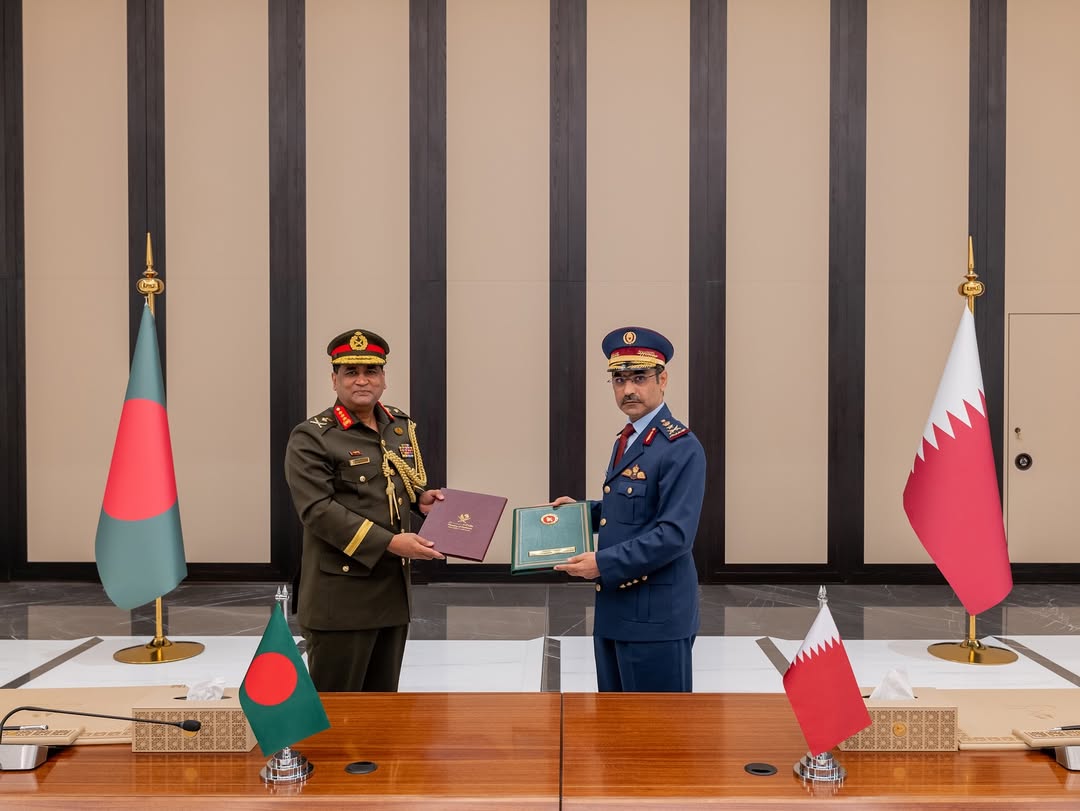The deal was formalized in Doha by Lt Gen S.M. Kamrul Hassan, Principal Staff Officer of Bangladesh’s Armed Forces Division, and Lt Gen (Pilot) Jassim bin Mohammed Al Mannai, Chief of Staff of the Qatar Armed Forces.
Initial Deployment: About 800 Bangladeshi personnel are to be sent to Qatar under this agreement.
Contract Length: The deputation is set for an initial term of three years, with a possibility to extend up to six years depending on performance.
Financial & Strategic Benefits: For Bangladesh, this deal represents a significant opportunity. The deployed personnel will earn abroad, and in turn, the Bangladeshi government expects to earn a notable amount of foreign currency. Beyond financial gain, the move reflects enhanced trust in the professionalism and skill of Bangladesh’s forces.
Long-Term Vision: While the current number stands at 800, both sides have indicated that this number may increase in the future. The agreement is not just transactional—it’s meant to deepen long-term defence ties and cooperation.
Why This Matters
Bangladeshi troops, who have substantial experience (including UN peacekeeping missions), will now have the opportunity to serve in a Gulf nation’s armed forces. This is a validation of their training, discipline, and adaptability.
The agreement is a concrete outcome of sustained diplomacy. Earlier this year, high-level visits — including that of Bangladesh’s Chief Adviser — helped set the stage for this pact. The deal signals not just military cooperation but a broader strengthening of bilateral ties.
Beyond the salaries for individual servicemembers, Bangladesh stands to benefit from inward remittances and potentially other ancillary economic gains tied to this defence relationship.
For Qatar, tapping into a pool of trained, disciplined foreign personnel may help diversify and professionalize aspects of its armed forces. For Bangladesh, this extends its footprint and influence in the Gulf in a measured, strategic way.
Bangladeshi personnel will need to adapt to Qatar’s military culture, climate, and operational procedures. Cultural and organisational alignment will be key.
Ensuring that deployed personnel maintain high performance standards will be crucial, especially if contracts are extended to six years.
While there’s room to expand beyond 800, scaling up will require carefully managed recruitment, training, and negotiation to maintain quality and mutual benefit.
This agreement marks a significant milestone in Bangladesh–Qatar relations. It is not simply a manpower export deal: it's a symbol of mutual trust and ambition. For Bangladesh, it opens a new avenue where its armed forces can contribute abroad, bring in foreign currency, and project professional excellence. For Qatar, it's a way to tap into a reliable, disciplined workforce. If managed effectively, this partnership could grow beyond its first cohort of 800, becoming a robust pillar of bilateral strategic cooperation.
